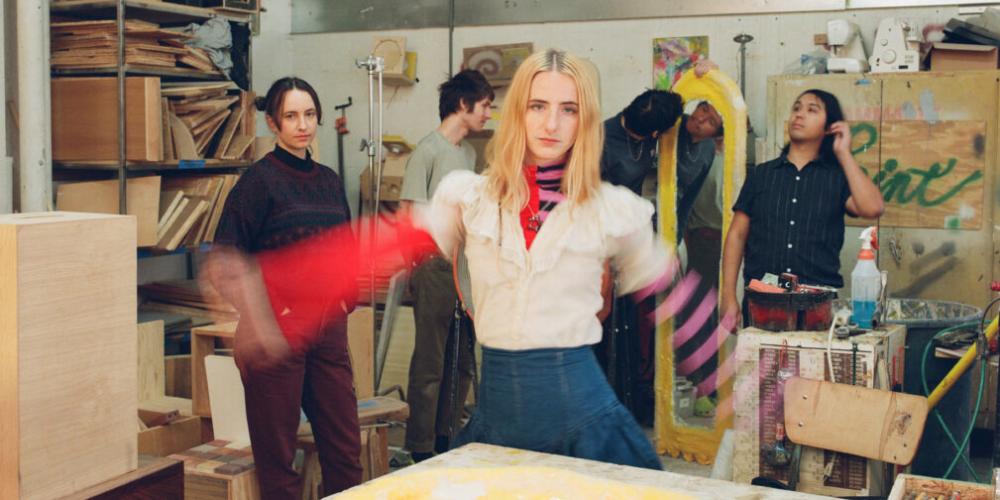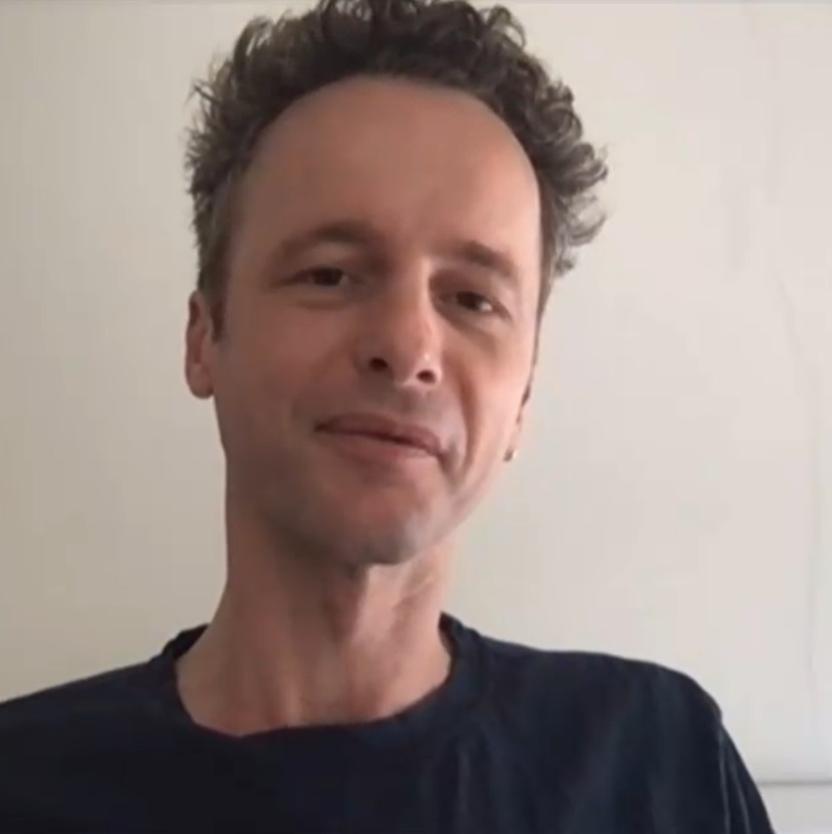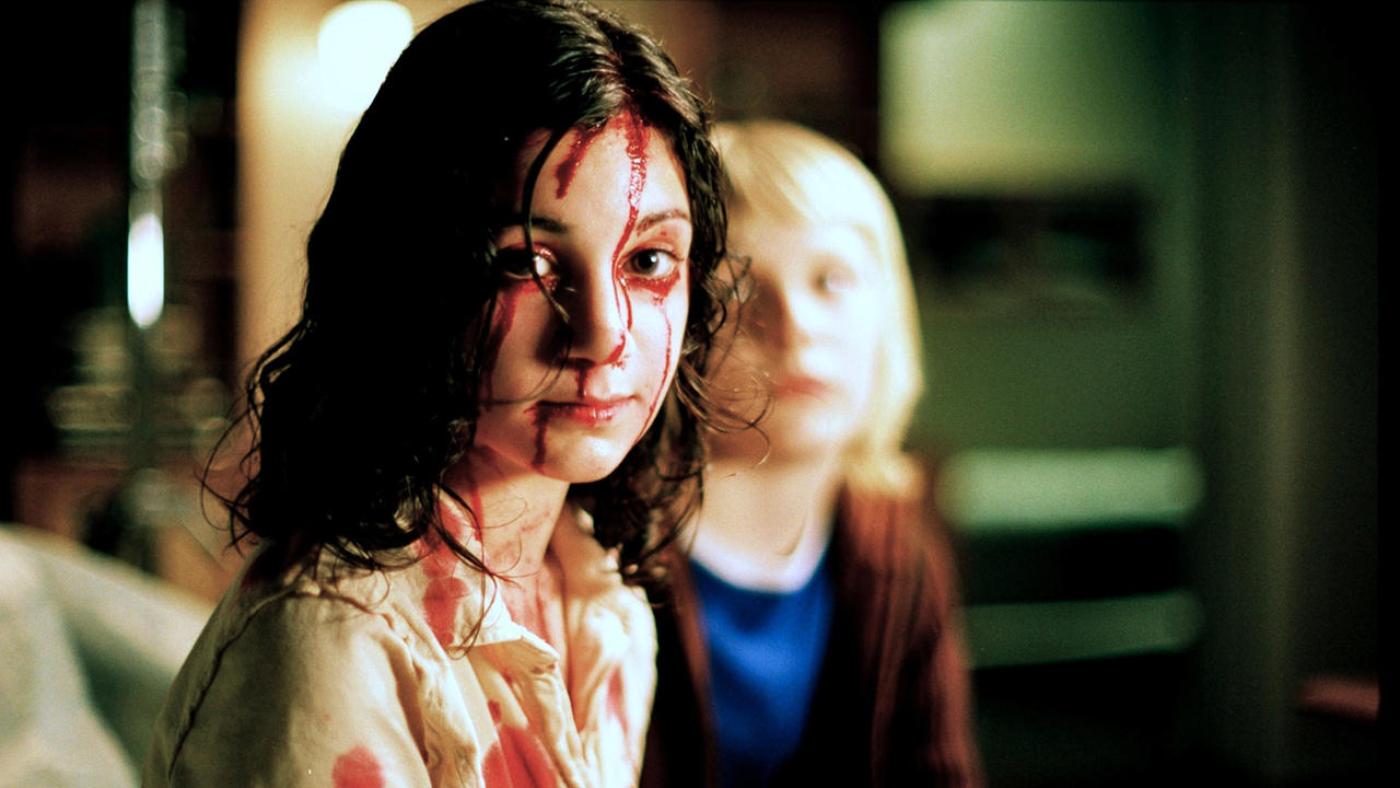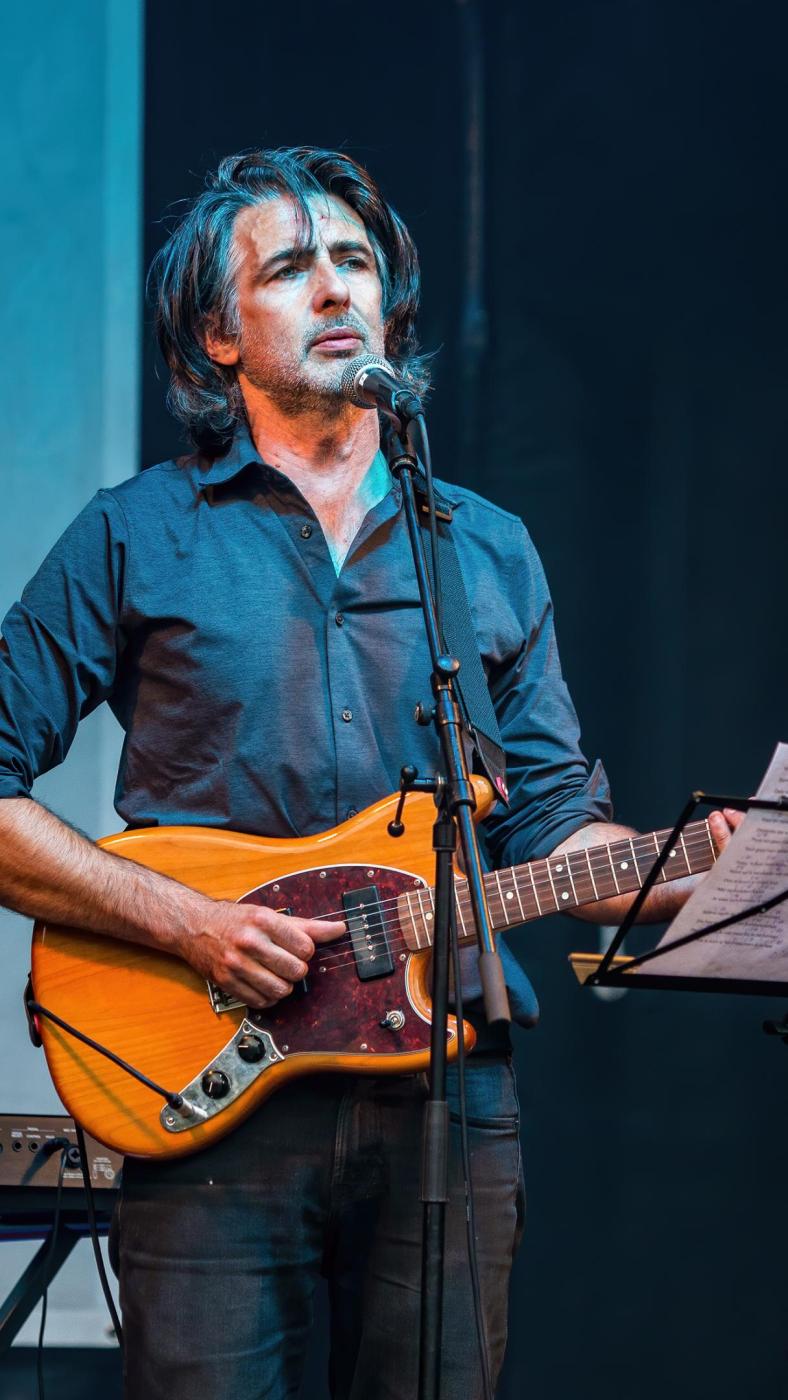
Pilar, the artistic laboratory for youth at the VUB (Vrije Universiteit Brussel), celebrates its fifth anniversary this year. This week, they launch the new cultural season. Coordinator Gijs Ieven reflects on the past and looks to the future. "We've secured a permanent spot in Brussels' cultural scene."

Coördinator PILAR Gijs Ieven
Pilar is celebrating its fifth birthday this academic year. How has your work evolved over the years?
"After the nomadic existence of KultuurKaffee in its final years, we wanted to create a completely new story. With Pilar, the aim was to establish a permanent infrastructure and a larger team on campus. We officially opened in mid-October 2019 but had to close shortly after due to Covid. Talk about a false start! Like all cultural organisations, we've noticed that audiences are less likely to buy tickets far in advance now. This makes it difficult to predict attendance. But we're not alone in this. Despite the rocky start, we can say we've carved out a solid place in Brussels' cultural landscape. Young people know Pilar, and many emerging artists have found their way to us."
What do these artists find with you that they might not find elsewhere?
"We really focus on supporting emerging artists, those just starting out in their professional careers but still needing guidance to take their first steps in the cultural circuit. Pilar often acts as a catalyst for them. They not only find a professional environment here with excellent infrastructure, but the Pilar team also actively works with them to identify their needs. Over the past five years, many artists have passed through here and gone on to breakthrough success in major galleries or concert halls. I'm thinking of visual artists like Ilke Cop or Neoza Goffin, or musician Sylvie Kreusch, who now sells out the AB but couldn't access such stages at the time."
You used to identify as the House of Arts & Science. Why have you dropped that tagline?
"That evolved organically. In the early days, we focused heavily on the intersection of art and science. But that rigid framework became somewhat restrictive, and it raised the barrier for the audience. Plus, there are other organisations in Brussels, like Ohme, that are strong in this area, and we collaborate with them. When opportunities arise – and they do regularly – we still make that connection between art and science, but it's no longer our sole focus."
What else is new?
"Our collaboration with young artistic collectives. A few times a year, we hand over our infrastructure and programming entirely to a collective. For the first exhibition of the new season and the opening night of the Pilar Box, we issued an open call. The Brussels-based collective Chaos Village was selected. We support them, but they have the freedom to shape the programme as they wish. These collectives often have strong ideas about the design or atmosphere of an event, but they need places where they can execute a total concept. We’ve also noticed that young collectives sometimes lack experience on the organisational side. We coach them on creating a financial plan or setting up communications. Additionally, we're broadening our programme. Since last year, we've been experimenting with film offerings. Film is often more accessible to people than theatre, visual art, or niche jazz concerts. In the spring, we programmed music films; this season, we're doing a monthly 'Cult Movie Monday'."

Shot from the horror movie 'Let the right one in'
You’re also organising a workshop on safe spaces in nightlife?
"Yes. Our educational offering – including workshops and study days – is also new. Creating safe spaces is a topic that resonates with student groups. How can we make our venue a safe and free environment? This workshop is aimed at student group representatives as well as professional cultural workers active in Brussels' nightlife scene. The idea is to exchange tips and tricks, moderated by experts from Brussels By Night and Deep Down East – two organisations with extensive experience on the topic. Do you work with security at the door or stewards who engage in dialogue when a conflict arises? Who can people turn to if they feel unsafe? Are members of the organisation visibly present, for example? It’s not going to be a theoretical lecture but a hands-on exchange of ideas."
"For the nostalgics, the spirit of KultuurKaffee returns with a Retro KultuurKaffee night featuring Mauro Pawlowski"

Mauro Pawlowski performs at Retro KultuurKaffee on 11 December
Which events are you most looking forward to this autumn?
"This Wednesday, there's a concert by the promising young Brussels band Another Dancer. This fits with our focus on the city's talent. Another Dancer is launching their first album with us, the culmination of a residency. I think they’ll make waves in the future. I'm also excited about Malinconico by Par Hasard. We don't programme much theatre, so I’m always happy when a theatre company takes the stage. We've also handed over the programming of a concert series to the music platform Dansende Beren. That promises to be exciting. They've managed to book Foyer Red, a trendy band from Brooklyn. So, it’s not just Belgian and Dutch artists we’re bringing in. And for the nostalgics, the spirit of KultuurKaffee returns with a Retro KultuurKaffee night featuring Mauro Pawlowski, who performed here many times in the past."
For new students, KultuurKaffee doesn’t ring any bells. Why is the older generation so nostalgic about it?
"KultuurKaffee was Pilar's predecessor, and it was literally a café with a cultural programme, roughly where Pilar is now. Over the years, it gained something of a mythical status. Various bands broke through internationally shortly after playing at KK – think of James Blake or dEUS, for example. But like many things from the past, KultuurKaffee has been somewhat romanticised. Our operations are far more professionalised compared to KultuurKaffee, with much better infrastructure and support for young artists. But for the alumni who still have a soft spot for the VUB and its cultural scene, we’re offering a trip down memory lane with Retro KultuurKaffee."
For the full programme, visit: pilar.brussels/en
This is a machine translation. Please excuse us for any possible errors.